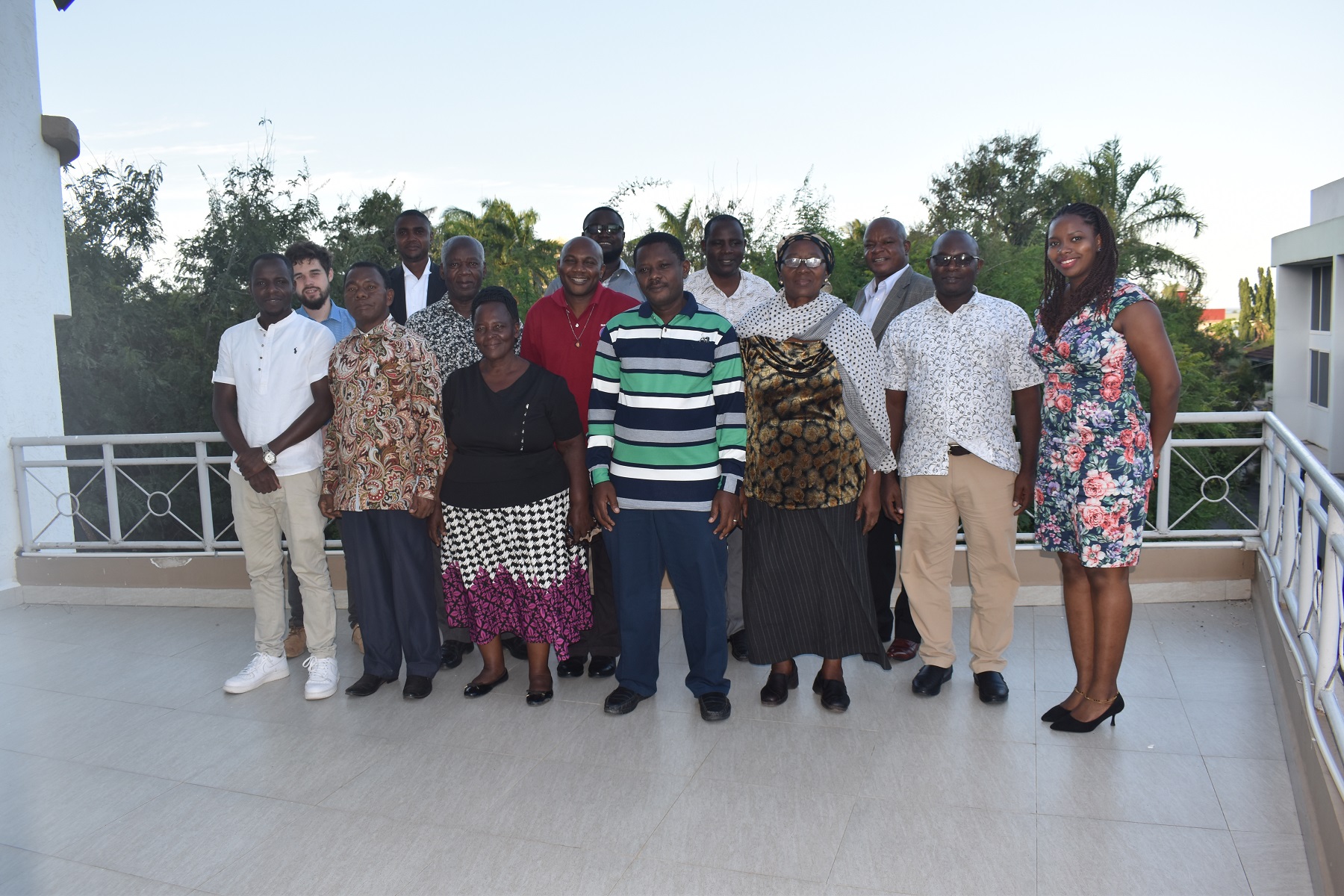
Published: MAY 11, 2022
Downscaled Climate Service can unlock the potential of local communities to adapt to climate impacts. If local communities get access to easy locally-specific and understabdable climate information they can base there planning and decision making on it. To leverage this potential of climate service a coalition of CSO and other stakeholders united to advocate for downscaled climate services. The coalition is committed to fast-track the development, implementation and delivery of downscaled Climate Services in Tanzania. The Coalition meet now to take the next step to draft a actionable plan to realize their shared vision of downscaled climate services.
During the 3 meeting of the Tanzanian Coalition for Climate Services (TCCS) the members finalized the advocacy strategy for downscaled Climate Services and started to draft a action plan to realize the strategy. Before the action plan was drafted the particpants where informed on integration of indigenous knowledge into climate services by the leading expert on the field in Tanzania : Prof. Henry Mahoo.
The strategy and action plan focus on three main objectives:
- Established arrangement for promoted indigenous knowledge in project areas
- Established arrangement for indigenous knowledge integration and downscaling climate services
- Decisionmakers and policymakers informed on need for downscaled climate services
Learning from the champions
To ensure that the Coalition don’t miss an operrunity to learn from local knowledge holder and expertise it started to identify champions. This champions should inform on going the strategy, action plan and implementation activities of the coalition on the road towards downscaled CS.
As one of the first champions Prof. Henry Mahoo was identified. He shared in scope of the coalition meeting insights on his experience with designing, implementing and evaluating climate services that integrate indigenous knowledge. The discussion based on Prof Mahoos presentation informed the drafting of the action plan.
Prof. Mahoo empathized the need and value of systematic documentation of IK. IK is threatened to get lost througt to various factors as disappearance of flora and fauna and due to limited intergenerational transmission of IK. He presented how his research piloted in documenting IK and showed how approaches as seasonal calanders and the establishment of local IK forcaster groups can be key in documenting and promoting local IK on weather forecasting.
He gave deeper insights into how IK forcaster groups can work. His pilot project installed IK teams in 3 villages. The drafted IK weather forecast 2 times per months and self-assessed the performance of them. Building on it IK can be integrated with science-based forecasts by using a consensus-based approach. He explained how the Tanzanian Metrological Authority (TMA) can integrated Indigenous knowledge into their products by conducting collaborative meetings with IK forecast groups resulting in consenus-based forecasts.
Beyond IK integration Prof Mahoo pointed out that serval additional challenges has to be tackled to develop and deliver downscaled and useable forecasts. Among them he highlighted in specific the challenges around dessimination and packing. For useful climate services they have to reach the end user and have to be understood and interpreted by them as well. Only if the CS are delivered in an easy accessible and easy understandable way they can be helpful for smallholders to inform there adaptation activities.
The action plan: Bridge the gaps to downscaled Climate Services
The action plan directly address open issues and on concerns that still challenges the implementation and use of downscaled forecasts. Through a mix out of Advocay work, stakeholder engagement, capacity strengthening and focus on documentation and promotion of indigenous knowledge the action plan aims to achieve useable and downscaled Climate Services in Tanzanian.
